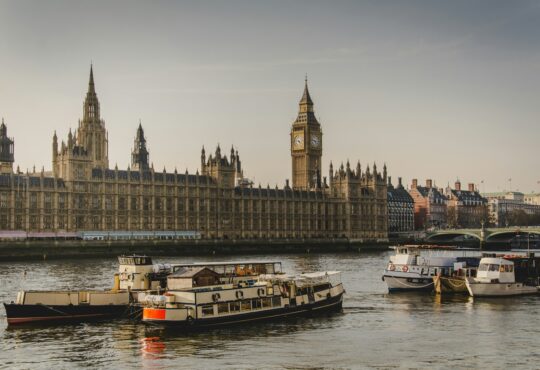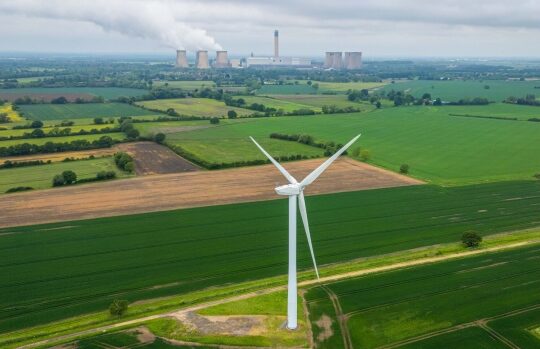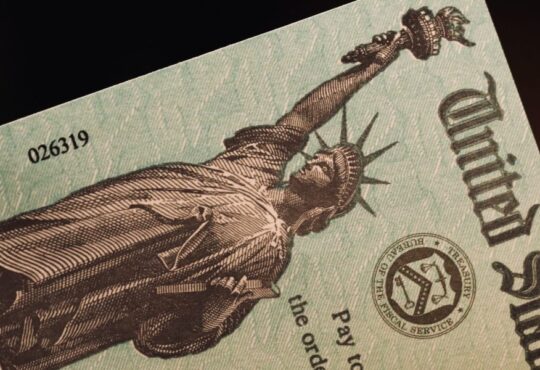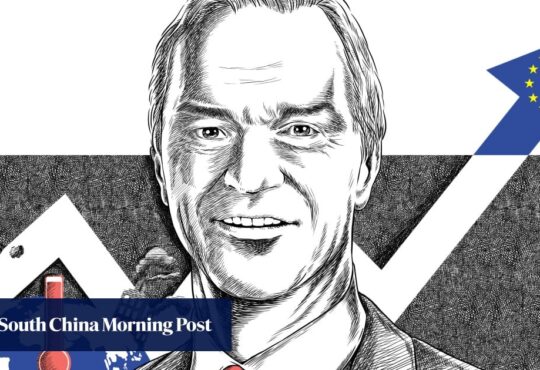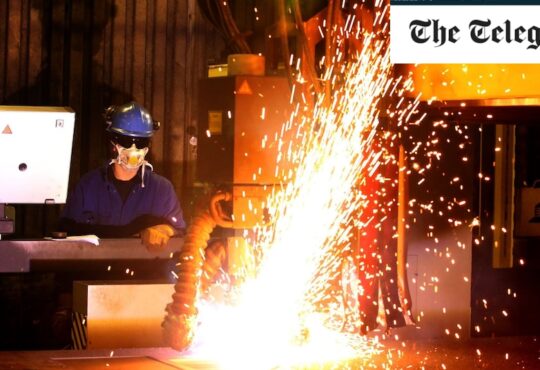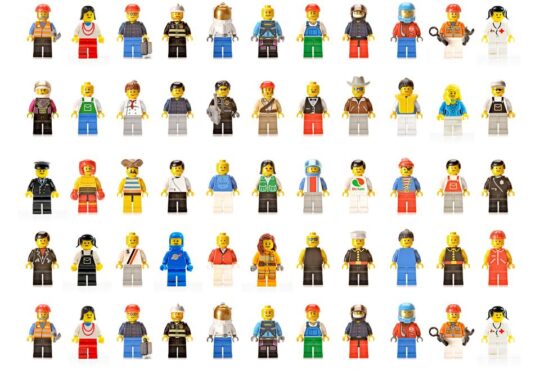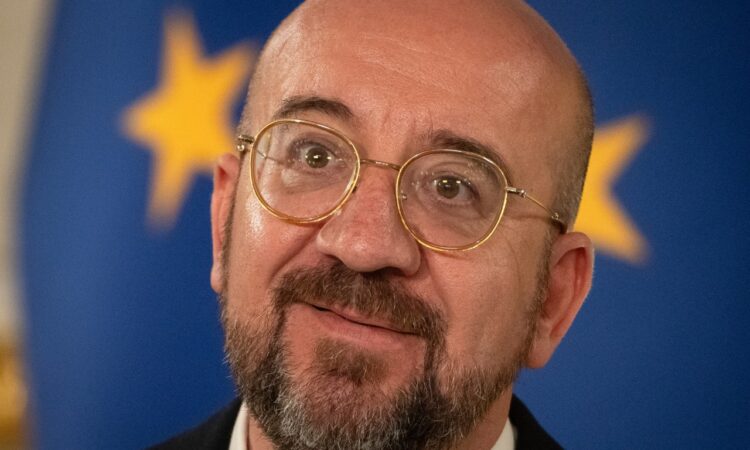
FILE – European Council President Charles Michel attends a joint press conference with Ukrainian President Volodymyr Zelenskyy, unseen, and President of Moldova Maia Sandu, unseen, in Kyiv, Ukraine, Nov. 21, 2023. Chinese President Xi Jinping met at a state guesthouse in Beijing with the two European presidents, Ursula von der Leyen from the EU Commission and Charles Michel from the EU Council on Thursday, Dec. 7, 2023. (AP Photo/Efrem Lukatsky, File)
BEIJING (AP) — The leaders of China and the European Union held talks Thursday that focused on their disputes over trade, subsidies and a deep divide over the war in Ukraine.
Chinese President Xi Jinping met in Beijing with the two European presidents, Ursula von der Leyen from the EU Commission and Charles Michel from the EU Council.
The European Union is calling on China to improve market access to address an annual trade imbalance of more than $200 billion between the two sides.
China is unhappy with EU restrictions on technology exports and an EU investigation into subsides for electric vehicles. The EU has also urged China to use its influence with Russia to help bring an end to the Ukraine conflict.
Von der Leyen said the two sides need to manage their differences responsibly.
“China is the EU’s most important trading partner,” von der Leyen said in opening remarks posted on the commission’s website. “But there are clear imbalances and differences that we must address.”
Xi said that China and the EU should handle their differences through dialogue, and pushed back against what his government sees as a shift in European policy on China toward a more strident and competitive approach.
The two sides “should not regard each other as rivals because of different systems, reduce cooperation because of competition, and confront each other because of differences,” he said, according to state broadcaster CCTV.
The meeting comes a day after EU member Italy announced it was withdrawing from Xi’s signature “Belt and Road” initiative that aims to build a global network of Chinese-financed roads, ports and power plants.
Italy became the first G7 country to sign on to the initiative in 2019, when the government at the time promoted it as a way of increasing trade with China while getting investments in major infrastructure projects.
Neither outcome materialized. In the intervening years, Italy’s trade deficit with China has ballooned from 20 billion euros to 48 billion euros ($21.5 billion to $51.8 billion.)
Foreign Ministry spokesperson Wang Wenbin defended the initiative and appeared to imply that Italy had been influenced by forces hostile to China.
“China firmly opposes smearing and undermining cooperation in building the Belt and Road and opposes stoking bloc confrontation and divisions” Wang said at a daily briefing Thursday.
After nearly three years of self-imposed isolation during the COVID-19 pandemic that took a heavy toll on its economy, and having adopted an assertive foreign policy that seeks to challenge the U.S.-led world order, China now appears to be taking a slightly more moderate tone.
Xi held four hours of talks with U.S. President Joe Biden last month in California in their first face-to-face meeting in a year, with the leaders vowing to stabilize their fraught relationship.
Von der Leyen and Michel, the president of the EU Council, met Xi in the morning and later held talks with China’s No. 2 leader, Premier Li Qiang. Von der Leyen, as commission president, heads the day-to-day business of the EU, while Michel chairs the summits of EU leaders.
Von der Leyen said the two sides had an “intense discussion on the topic of trade imbalance and the root causes,” citing in part a slowdown in the Chinese economy, which is reducing domestic demand and prompting companies to divert their products to the European market.
“We agreed that we have now a list of different elements where we want to deep dive together in the high-level dialogue. This is important, first of all on our side to show the evidence but secondly then also to seek concrete results on the ground,” she said.
“It is important that the sides have a frank and open relationship and that we have stable trade relations with each other,” von der Leyen said.
The talks were “candid, frank, in-depth and constructive,” Wang Lutong, director general of the Foreign Ministry’s European Department, told reporters. He repeated China’s call for an immediate cease-fire in Ukraine and the opening of talks between Western leaders and Russian President Vladimir Putin. China says it is neutral in the conflict but has heavily criticized NATO and the West for allegedly provoking Putin and refused to criticize Russia’s actions.
Dialogue on human rights, economic cooperation, people-to-people exchanges, open trade, the environment, food security and China’s claim to Taiwan were also discussed, Wang said.
The European Union is calling on China to improve market access for products from its 27 member countries to address an annual trade imbalance of more than the massive trade imbalance. China exported $458.5 billion worth of goods to the EU in the first 11 months of this year and imported $257.8 billion, according to Chinese customs data released Thursday.
The EU has angered China by launching an investigation into the latter’s subsidies for electric vehicles to determine whether they give manufacturers in China an unfair competitive advantage in European markets.
“China has never deliberately pursued a trade surplus,” spokesperson Wang said ahead of the summit. He noted recent import and supply chain expos that he said encourage foreign companies to sell to the Chinese market of 1.4 billion people.
Wang also took aim at possible EU restrictions on technology exports to China. “I’m afraid it’s unreasonable if the EU imposes strict restrictions on the export of high-tech products to China while expecting a significant increase in exports to China,” he said.
The EU is looking for better market access for a range of products including cosmetics, infant formula, wine and other alcoholic beverages.
China has angered the EU by taking a neutral stance in what most European countries see as a Russian war of aggression against Ukraine. The EU is calling on China to use its influence with Russia to end the invasion, ensure that exports from or via China are not aiding Russia’s war effort and support Ukrainian President Volodymyr Zelenskyy’s peace formula. .
Von der Leyen said the EU and China have global responsibilities as major powers and a shared interest in peace and security.
“That is why it is essential to put an end to the Russian aggression against Ukraine and establish a just and lasting peace consistent with the U.N. Charter,” she said.
Xi said China and the EU should promote political settlements of international hot-spot issues, according to CCTV, which did not include any specific mention of the wars in Ukraine or Gaza.
___
Associated Press writer Christopher Bodeen in Taipei, Taiwan, contributed to this report.

